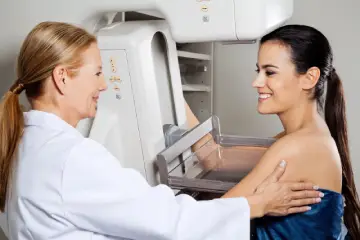Hysterectomy
Hysterectomy Q & A
What are the types of hysterectomy?
All hysterectomies involve removal of the uterus. But certain types are more extensive than others. Your doctor at The Women’s Center helps you understand your hysterectomy options and which one is best for you. These include:
- Supracervical hysterectomy, which leaves the cervix intact
- Total hysterectomy, which removes the uterus and cervix
- A total hysterectomy with bilateral salpingo-oophorectomy is a surgical procedure that removes the ovaries, fallopian tubes, uterus, and cervix.
- A radical hysterectomy, typically performed to treat cancer, involves removing the ovaries, fallopian tubes, uterus, cervix, upper part of the vagina, and nearby lymph nodes.
A hysterectomy isn’t the only way to treat conditions affecting your uterus. Your doctor at The Women’s Center helps you understand and explore all treatment options.
What conditions warrant a hysterectomy?
You may need a hysterectomy to treat issues such as abnormal uterine bleeding. Other reasons for a hysterectomy include:
- Severe, painful endometriosis
- Uterine prolapse
- Cervical or uterine cancer
- Severe pelvic pain
- Uterine fibroids that are painful
Your doctor at The Women’s Center may try noninvasive methods to treat many of these conditions before offering hysterectomy as an option.
What should I expect during a hysterectomy?
You’re usually put under general anesthesia for a hysterectomy. During the procedure, your surgeon from The Women’s Center makes an incision in your abdomen or vagina, depending on your anatomy and the type of hysterectomy you’re having. Abdominal and vaginal hysterectomies may be performed using a laparoscope, a tube affixed with a camera to give your doctor a better view.
A laparoscopic hysterectomy requires smaller incisions and results in a faster recovery.
What should I expect during recovery from a hysterectomy?
How long you spend in the hospital following your hysterectomy depends on your particular case. Once you go home, expect some restrictions on movement and heavy lifting. You can resume intercourse and physical activity 4-6 weeks after surgery.
Your period halts following a hysterectomy, pushing you into menopause. You may have light bleeding or spotting for a few weeks following the procedure, however.
For more information about hysterectomy surgery, call The Women’s Center today or book an appointment using the online tool.
We Provide You With The Best Services

Mammogram
Learn
More
Routine mammograms are the best way to find breast cancer early when it’s most treatable. The expert OB/GYN team at...




